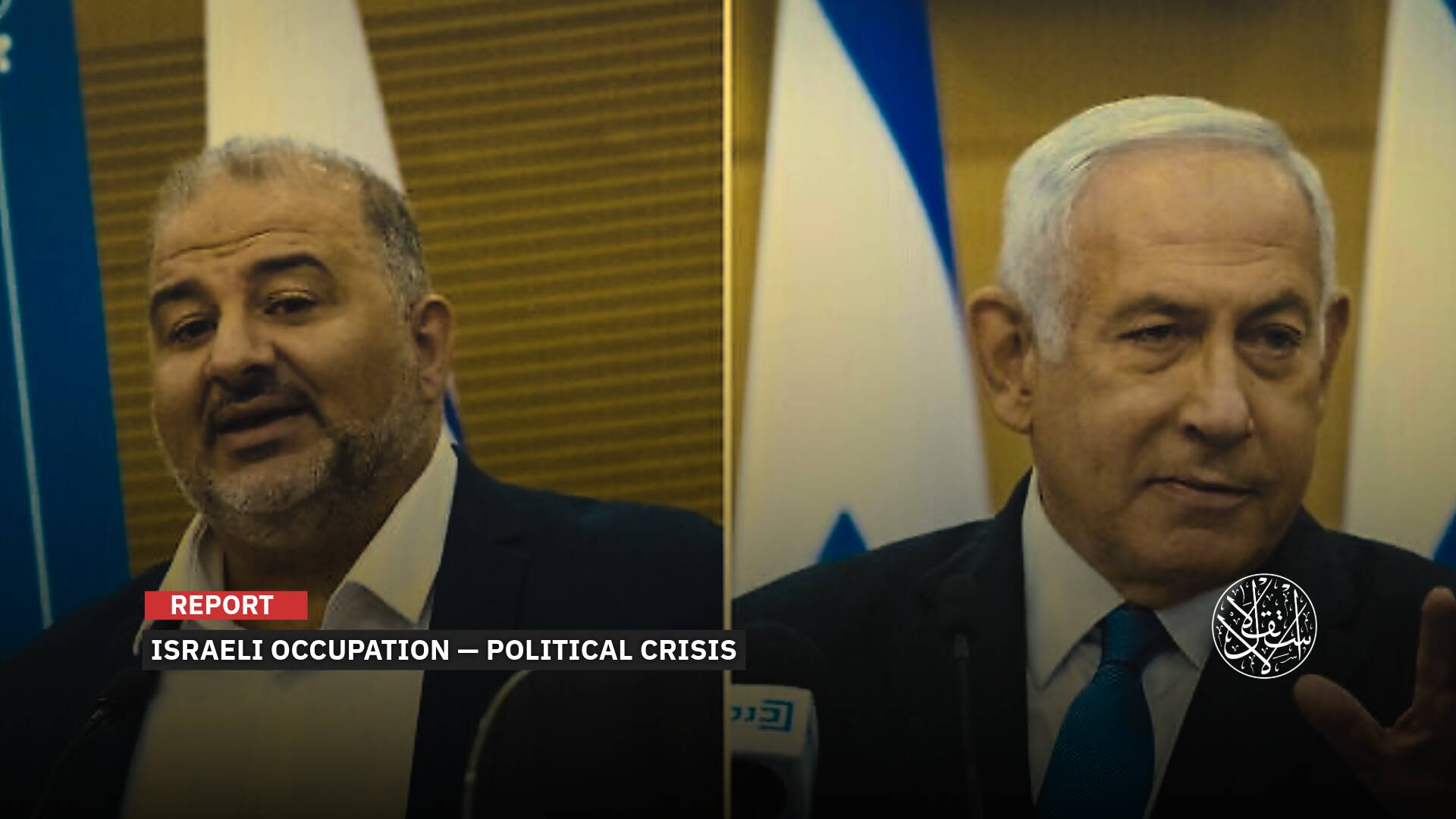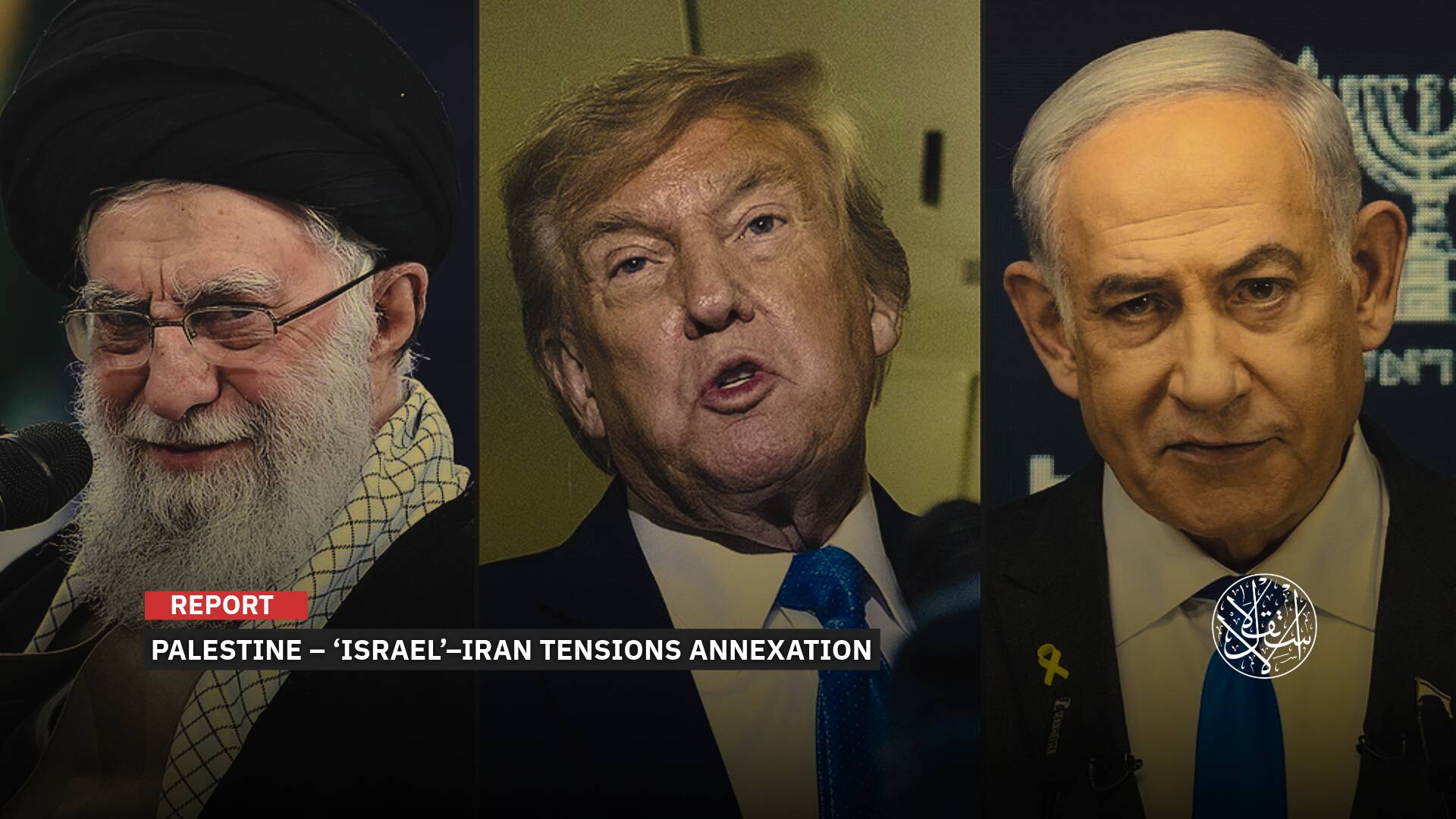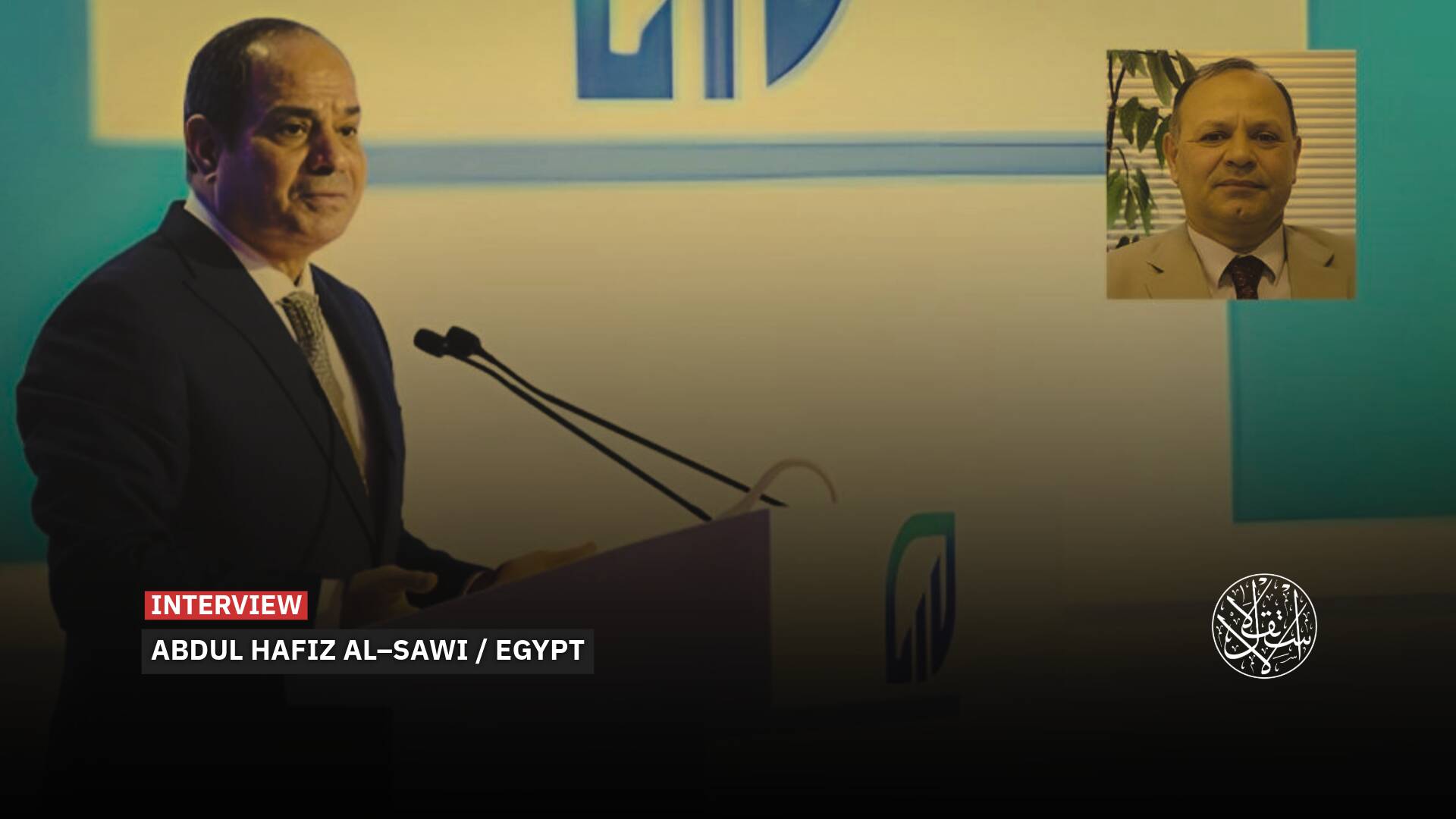This Is How the Israeli Occupation Fabricates Palestinian History in al-Quds Schools

"No to the Israelization of education, together to preserve the identity of our children, we have the right to choose our children's books," slogans raised by parents in the occupied city of al-Quds (Jerusalem) in the face of the Occupation authorities in rejection of the distorted Israeli curriculum.
These slogans were raised by school administrators, parents of students and parents' committees in al-Quds in several recent vigils to demand the rights of students to transportation, services, and safe roads to reach their schools and to affirm the right of their children to teach the Palestinian curriculum.
A battle has been raging in al-Quds since the beginning of the school year at the end of August 2022 concerning the curriculum that the Occupation authorities are trying to impose on all schools in the city.
Story Beginning
At the end of July 2022, the so-called Israeli Ministry of Education approved the revocation of permanent licenses for Palestinian schools in occupied al-Quds because of what it said was "incitement against the state and the army in textbooks."
Minister Yifat Shasha0Biton threatened to revoke the license of every educational institution that contains its curricula in incitement to "the State of Israel and its symbols."
This came after a series of inspections of these schools carried out by the Control and Enforcement Department of the Israeli Ministry, which amounted to selecting books from students' bags inside the classroom and summoning school principals to a listening committee.
They ended up being denied a permanent operating license and replaced with a temporary one for a year, during which the school worked to remove some of the content as a condition for returning the license.
In August, the ministry sent a letter to several schools entitled Textbooks containing inflammatory content in East Jerusalem schools.
The schools mentioned are the Abrahamic College in the al-Sawana neighborhood, founded in 1931, and the Faith Schools, with its five branches throughout occupied al-Quds, founded in 1984.
The latest Israeli decision claimed that "incitement" was mentioned in some third, seventh, and ninth-grade books by glorifying the prisoners and their armed struggle against the Occupation and accusing the latter of being responsible for the water crisis in the Palestinian Authority territories.
The books also talked about the occupation of Palestine and the crimes against its people and listed the issues of the Nakba in 1948, massacres, demolitions, arrests, settlements, and the separation wall, in addition to obstructing and targeting Palestinian medical staff.
The targeted schools are classified as private, with more than two thousand al-Quds students, and enjoy international quality standards.
There are four types of schools in East al-Quds: Israeli, private, and public Palestinian schools affiliated with the Authority, and the fourth affiliated with the United Nations Relief and Works Agency for Refugees (UNRWA).
With the exception of the Israeli, the other three schools teach the 135 undistorted Palestinian curricula.
The first type belongs to the Occupation municipality in al-Quds (Jerusalem), which has 85 schools, some of which have been seized by Tel Aviv since 1967 and others built over the past years.
The Israeli measures affect some 98,428 students at all primary, preparatory, and secondary levels in al-Quds, according to data from the Faisal al-Husseini Foundation, which works in the development of education in the city, published in early July 2022.
Some 45,500 of them go to 146 schools that belong to or teach Palestinian education umbrellas, while the rest go to schools under the Israeli Ministry of Education.
According to Israeli law, no school in East Jerusalem can be activated without a license issued by the Israeli Ministry of Education, so all private and municipal schools obtain a license from them.
Most of these schools used to teach the Palestinian curriculum, but conditions have been changing since 2011 when the Israeli Occupation printed new books to impose on these institutions.
Attempts to change the curriculum have begun since the occupation of al-Quds in 1967 through the reprinting of books issued by the Palestinian Ministry of Education, after deleting national contents from them and adding other distorted ones.
What Does it Contain?
Pictures circulated by the residents showed that the curriculum distorted anything related to Palestine, its history, and the Nakba it suffered in 1948.
From the images circulating, it appears that "Israel," not "occupied Palestine," is bordered by several countries: Jordan, Egypt, Lebanon, and Syria.
A photo also showed a passage from a poem about the Israeli Occupation's so-called "anthem of independence" for the state founded on the ruins of the occupied Palestinian territories.

The distorted approach to the Western Wall in al-Quds was called one of the most important holy places for Jews, claiming that it is also known for their most prominent holidays on the Sabbath.
Ahmed Safadi, a media spokesman for the Palestinian Teacher's Union in al-Quds, said, "The distorted curriculum is dangerous, as it deletes al-Quds symbols such as the Palestinian flag."
He said in a September 19 press statement that the curriculum "distorts facts such as using the name of the Temple Mount as an alternative to the blessed al-Aqsa Mosque, and celebrating Independence Day as an alternative to the events of commemorating the Palestinian Nakba, in the battle to poison Palestinian consciousness."
Ziad Ibhais, a researcher specializing in al-Quds affairs, explained that the distorted curriculum that is being rejected is a reprint of the PA curriculum with the whitewashing of every word, image, page, or lesson that the Israeli Occupation's inspectors do not like, and the removal of everything that symbolizes Palestine or the Palestinian Authority.
In an article published by the Palestinian Media Center on September 19, he added that "this curriculum reflects the vision of Zionism towards the people of al-Quds and towards the Palestinians in general, as it sees them as an excess of human burden, and sees their presence under its authority as a historical sin."
"Therefore, it is not trying to invite them to join Zionism through assimilative approaches, even out of illusion, but rather it is concerned with their early programming to accept censorship from a higher authority that exists to control their destinies as they imagine and that they must be a human material devoid of content, neither Palestinian nor Zionist, suitable only to be a cheap labor force and a consumer market," he said.
He stressed that the Occupation authorities are trying to impose this curriculum today on private schools, taking advantage of the fact that the administrations of those schools fall into the trap of "receiving support" from the Occupation municipality as "our share of taxes," especially since this delusional "support" began unconditional and today it ends very conditional on the usual Zionist malice.
Countermeasures
Parents and school administrators responded to attempts to impose the distorted curriculum and the threat of closure by carrying out a comprehensive strike on September 19 in all schools in occupied al-Quds, in rejection of the Israeli Occupation's attempts to impose the curriculum.
The strike came in response to calls by national and Islamic forces in the holy city for all schools to commit to striking in rejection of any form of imposition of the Israeli curriculum or the distorted curriculum.
Al-Quds families have announced their commitment to strike while not sending their children and teachers to their schools.
On that day, 150 Arab schools in al-Quds closed their doors in the face of the Israeli government's attempts to impose the Israeli curriculum and the falsification and distortion of the historical narrative it contains on students as an alternative to the Palestinian curriculum in a years-long battle over the historical narrative.

In a joint statement with the parents of al-Quds, the national forces held the management of any school national, moral, and religious responsibility and called on them not to deviate from the consensus of the people and violate the national position.
It called on the Palestinian government to provide real alternatives and secure the actual needs and resources necessary to protect educational institutions and the Palestinian curriculum.
The forces rejected all forms of financial extortion practiced by the Ministry of Education and the municipality on the school administrations in al-Quds and the policy of public and veiled threats towards them.
At the beginning of the school year, the Union of Parents Committees in East Jerusalem distributed the Palestinian curriculum to students in front of the gates of schools threatened with final closure.
The head of the Central Committee of Tur Schools, Mufid Abu Ghannam, said that "the strike is a first message to the [Israeli] Occupation authorities that we will not accept the distorted Palestinian curriculum and will not accept the Israelization of thought, culture, and belief among our children."
"Not all parents have sent their children to school, which shows the extent of popular awareness intellectually, culturally, and religiously," he told the al-Quds news platform Al-Qastal.
He pointed out that "this is a first step, and if the [Israeli] Occupation does not retreat from the colonial project, there will be other escalatory steps, such as the implementation of sit-ins and strikes as required by the next stage."











